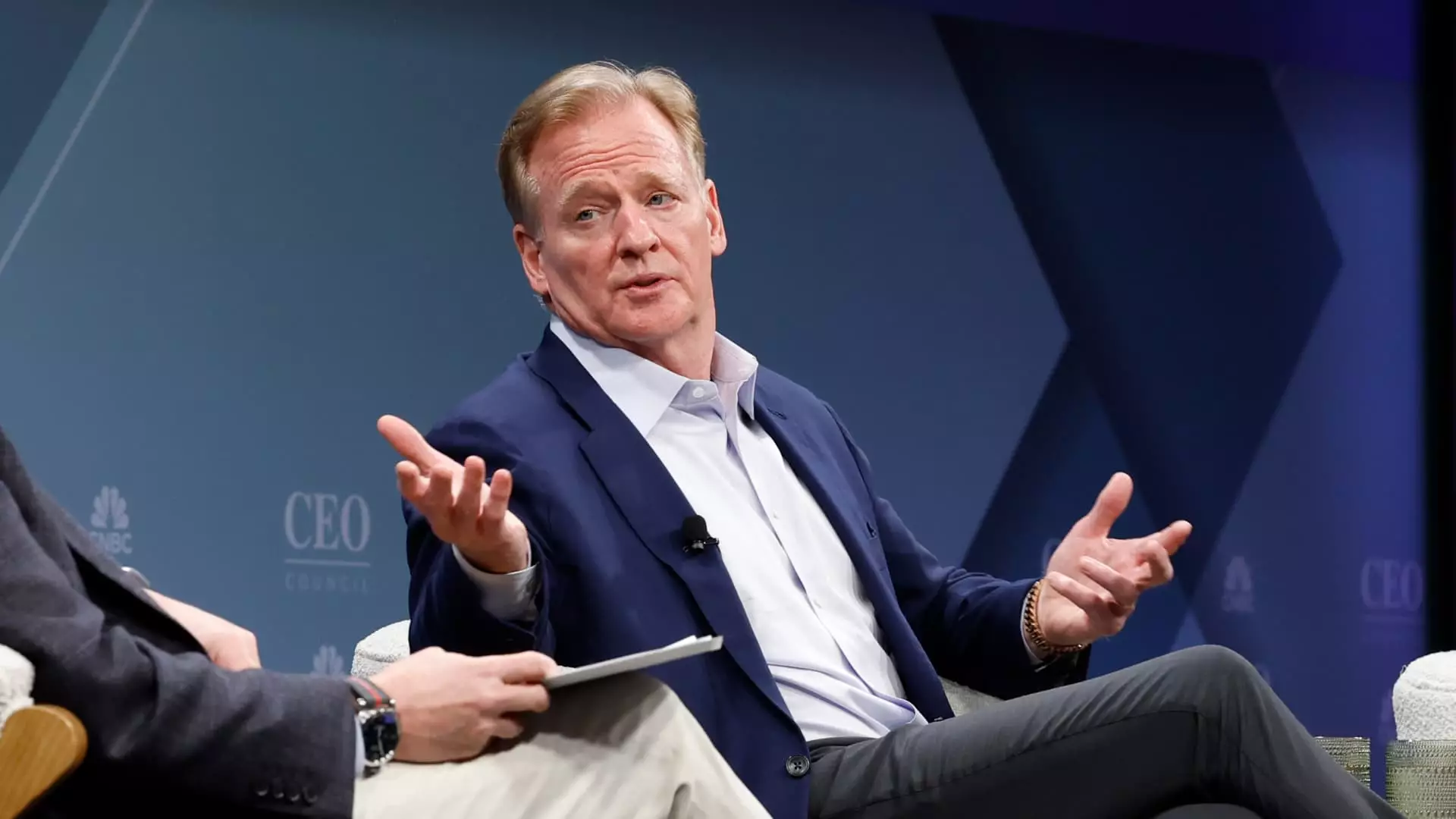In a move that is both ambitious and expertly calculated, NFL Commissioner Roger Goodell has unveiled plans that could see the league playing as many as 16 games abroad each season over the next five years. Goodell’s announcement at the CNBC CEO Council Summit, alongside Marriott CEO Anthony Capuano, signals a monumental shift in the NFL’s approach to international markets, tapping into a fan base that transcends borders. The league’s current schedule already boasts seven international games planned for 2025, which reflects an unprecedented response to the calls for more global engagement. For a league that already enjoys a massive domestic following, this strategic pivot seems poised not just to enhance its global footprint but to fundamentally redefine what it means to be a sports league in the 21st century.
The NFL is not merely a sports league; it is becoming an international brand, and this expansion offers substantial financial opportunities. Goodell stated, “International is an open market for us,” and he’s absolutely right. With over 200 million fans residing in the U.S. alone, one can only imagine the untapped potential worldwide. The idea of global NFL games is not just about exciting foreign audiences but is also a savvy business move that could elevate revenue streams and brand visibility in countries where American football is still on the rise.
The economic impact of sports travel
Goodell’s assertion of the potential for sports-related travel amplifies the stakes involved. As Capuano noted, this industry drives more than $50 billion annually, signifying that the convergence of sports and travel is more than just a symbolic partnership; it’s a robust economic engine. For American businesses, including hoteliers like Marriott, this represents an exciting opportunity to capitalize on the NFL’s global ambitions. Engaging international fans who travel for games, both for the culturally rich experiences and the thrill of live sports, could dramatically boost the economy in those host countries.
In a time when many sectors grapple with uncertainties such as inflation and shifting consumer sentiment, the NFL appears to stand resilient. Goodell maintains a confident outlook, suggesting that despite potential economic headwinds, the demand for NFL content remains strong. This signifies a disconnect; while the average American consumer may be tightening their belts, sports seem to operate under a different paradigm—a case study in maintaining loyalty amidst economic strife.
Market Valuations and Private Equity Influence
Perhaps equally arresting is the NFL’s venture into private equity with the recent allowance for select firms to invest up to 10% stakes in teams. Goodell’s acknowledgment that the private equity landscape is growing within football is indicative of a shift towards embracing diverse funding sources. The decision to permit firms like Ares Management and Sixth Street Partners to influence franchise dynamics offers teams a unique liquidity avenue that has historically been limited in the sports world.
The NFL’s average franchise valuation currently sits at about $6.49 billion, an astonishing figure that underlines the league’s financial vitality. With the San Francisco 49ers’ record valuation exceeding $8.5 billion for a minority stake, it’s clear that NFL franchises are not simply sports teams; they are lucrative assets. Goodell made a wise observation when he noted that this escalating valuation is a reflection of the “business model itself and the popularity of it.” The push into private equity illustrates a willingness to adapt and grow while staying ahead of market trends, reinforcing the league’s relevance and potential.
The Complexity of Demand in Changing Economic Landscapes
As Goodell points out, the challenges facing the wider economy may not drastically affect the NFL. Football has carved its niche, famously known for its capacity to capture attention and foster undeniable allegiance. However, this robust stance invites critical examination. Does the NFL’s resilience stem from unwavering loyalty among fans, or does it reflect a deeper societal engagement that sometimes ignores the struggles underlying economic indicators? It is a paradox worth exploring—while many American families face financial constraints, sport offers a unique form of escapism and community.
Moreover, relying solely on this loyalty may risk complacency. If the NFL is to wield its power responsibly, a balance must be struck. The focus should not solely lie on maximizing revenue or expanding brands; there must also be an emphasis on enhancing fan experiences and making the sport more accessible. Goodell’s vision can take the NFL to global heights, but it’s also essential for the league to address its local roots and commit to the communities that have sustained it through thick and thin.


Leave a Reply